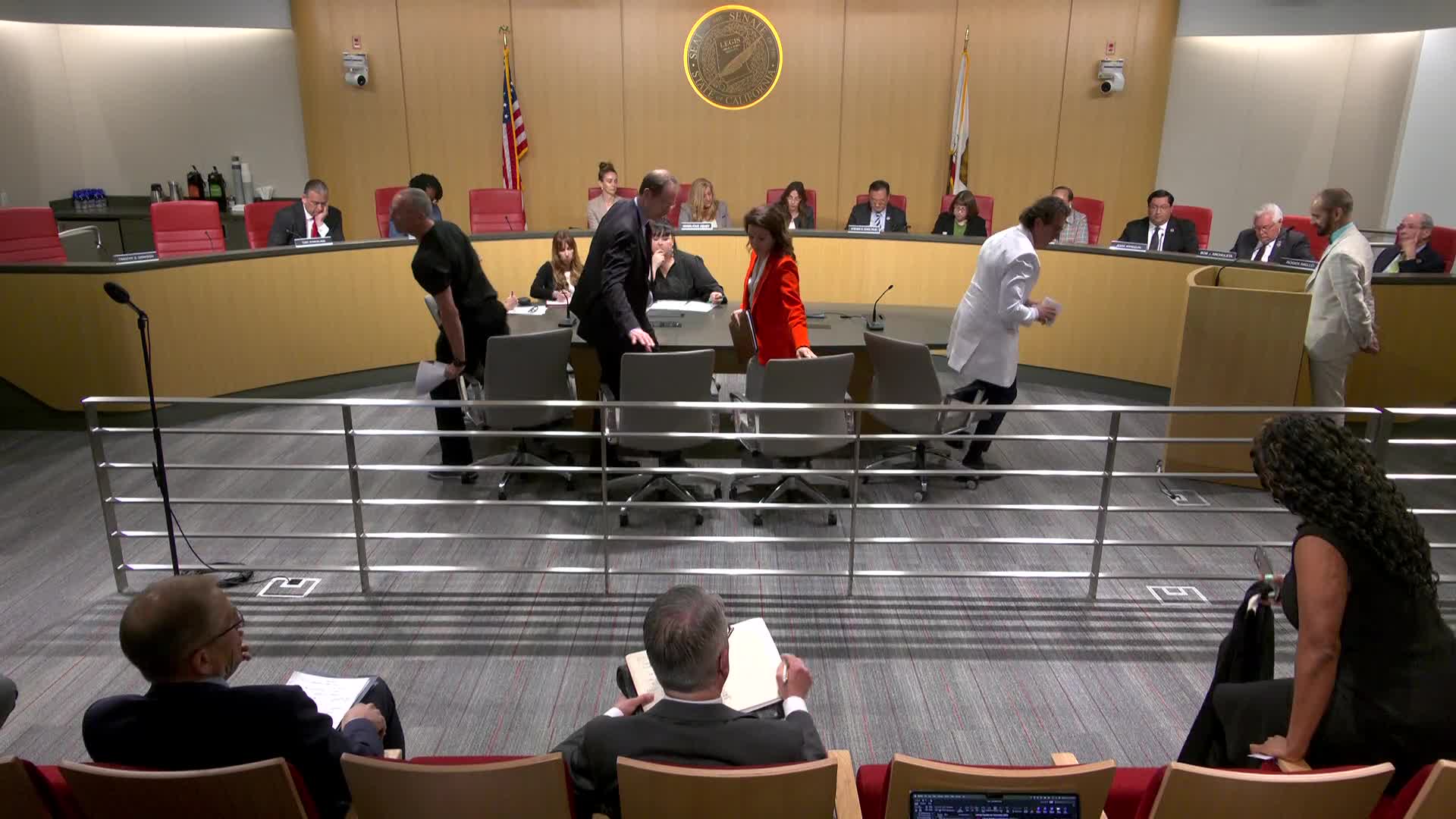Committee advances bill to let governor opt California into interstate reciprocity for online college courses with consumer protections
Get AI-powered insights, summaries, and transcripts
Subscribe
Summary
Sen. Cabaldon’s SB 790 would authorize the governor to join an interstate reciprocity agreement for online postsecondary programs, subject to specified consumer-protection conditions and state administration, and the Senate committee voted to send the bill to the Education Committee.
Sen. Cabaldon’s SB 790 would permit the governor to join an interstate reciprocity agreement for authorization of out-of-state providers of online higher education — with specified consumer-protection conditions — and direct a state agency to administer and enforce participation.
Cabaldon said California is the only state not participating in the interstate reciprocity arrangement and that the current patchwork forces California institutions to obtain authorization from every state or territory individually, a process he said imposes substantial administrative costs on institutions including community colleges, CSU, UC and private colleges. "For just five online programs, this can cost over $250,000 annually per institution," UC Davis Dean Julie Greenwood testified.
Supporters argued reciprocity would lower administrative burdens, expand access for working adults and out‑of‑state students, and bring California institutions into the national market. Bob Sharman of the Century Foundation called the author’s approach appropriate because it sets conditions California would require before joining the national agreement.
Opponents, including representatives of University of Phoenix and the Institute for College Access and Success (TICAS), raised three principal concerns: (1) the draft could permit a state or coordinating body to exclude for‑profit institutions without a clear due‑process standard; (2) California should not cede the ability to enforce stronger consumer protections; and (3) some registration changes could allow institutions to keep enrolling students while facing enforcement actions, where current law pauses enrollment during risk reviews. Scott Giver of University of Phoenix said the bill, as drafted, could allow denial of participation "at their discretion" without due process.
Committee members pressed questions about whether the proposal would protect students from historically predatory institutions and how it would treat for‑profit providers. Cabaldon said the bill would not require California to join any reciprocity system and that it is designed to push the national agreement to adopt stronger consumer protections.
The committee voted to pass SB 790 to the Senate Education Committee; the author said he will accept and consider further amendments to address consumer‑protection concerns raised by stakeholders.
SB 790 advanced with committee direction to continue stakeholder negotiation on enforcement, consumer protections, and eligibility for participation.
